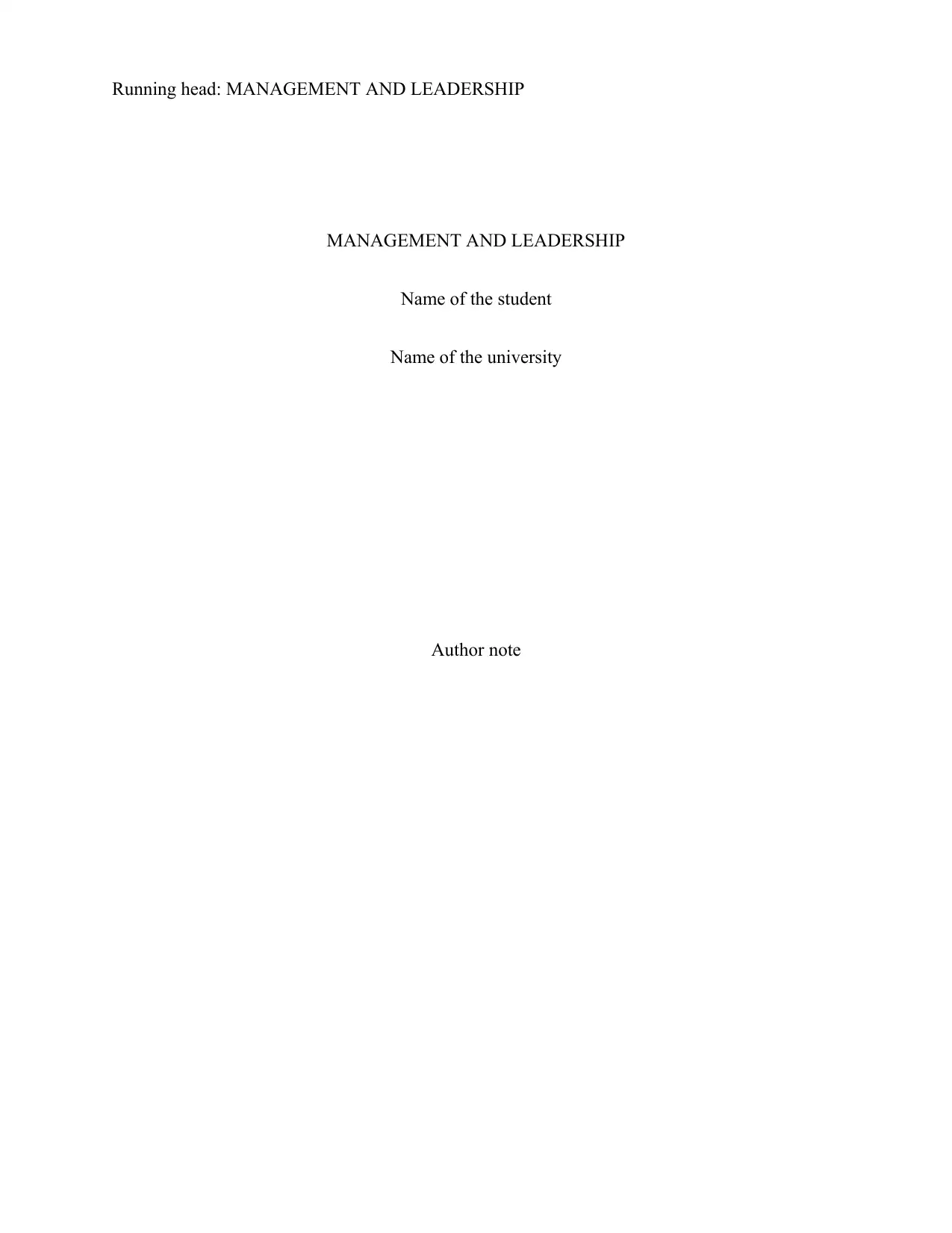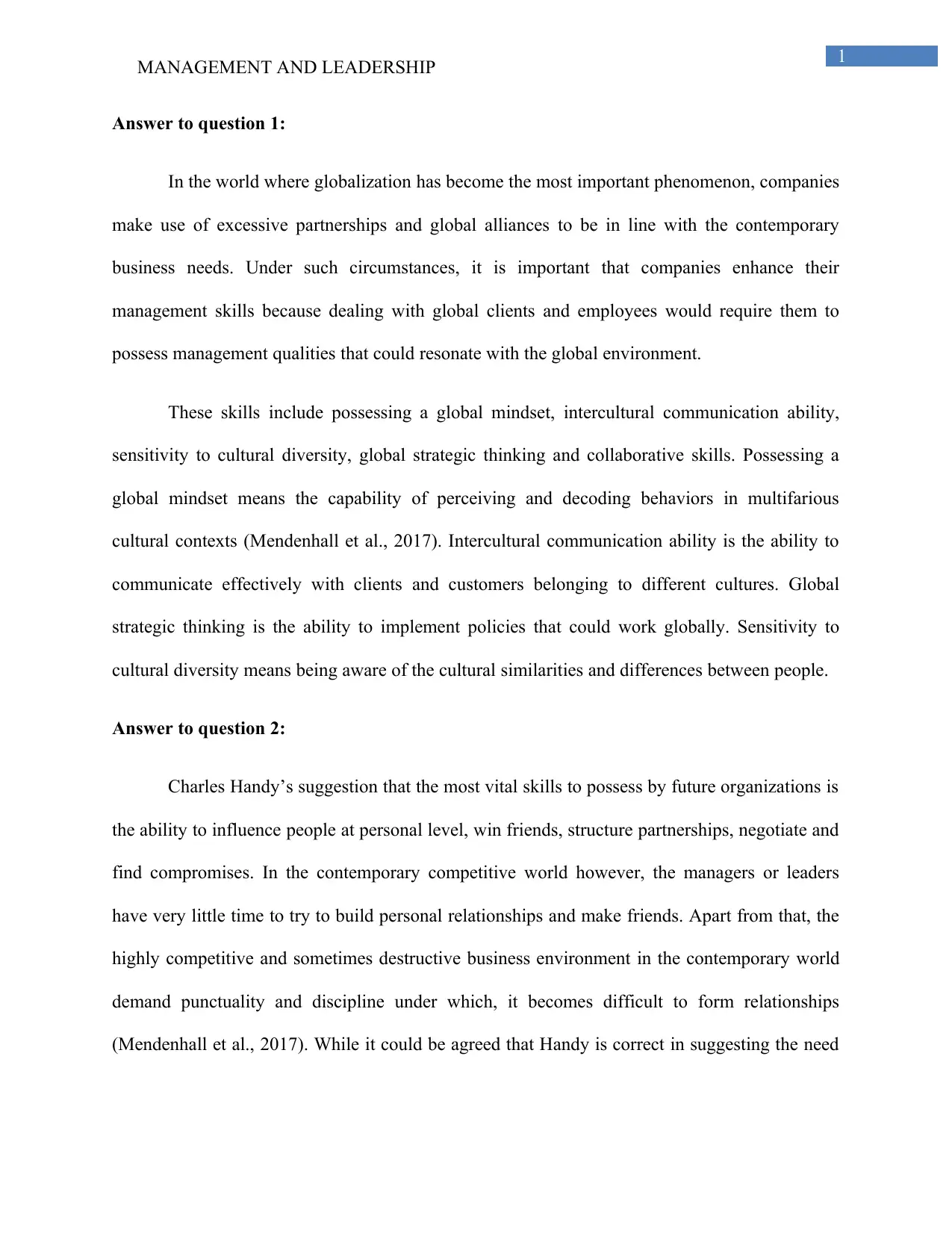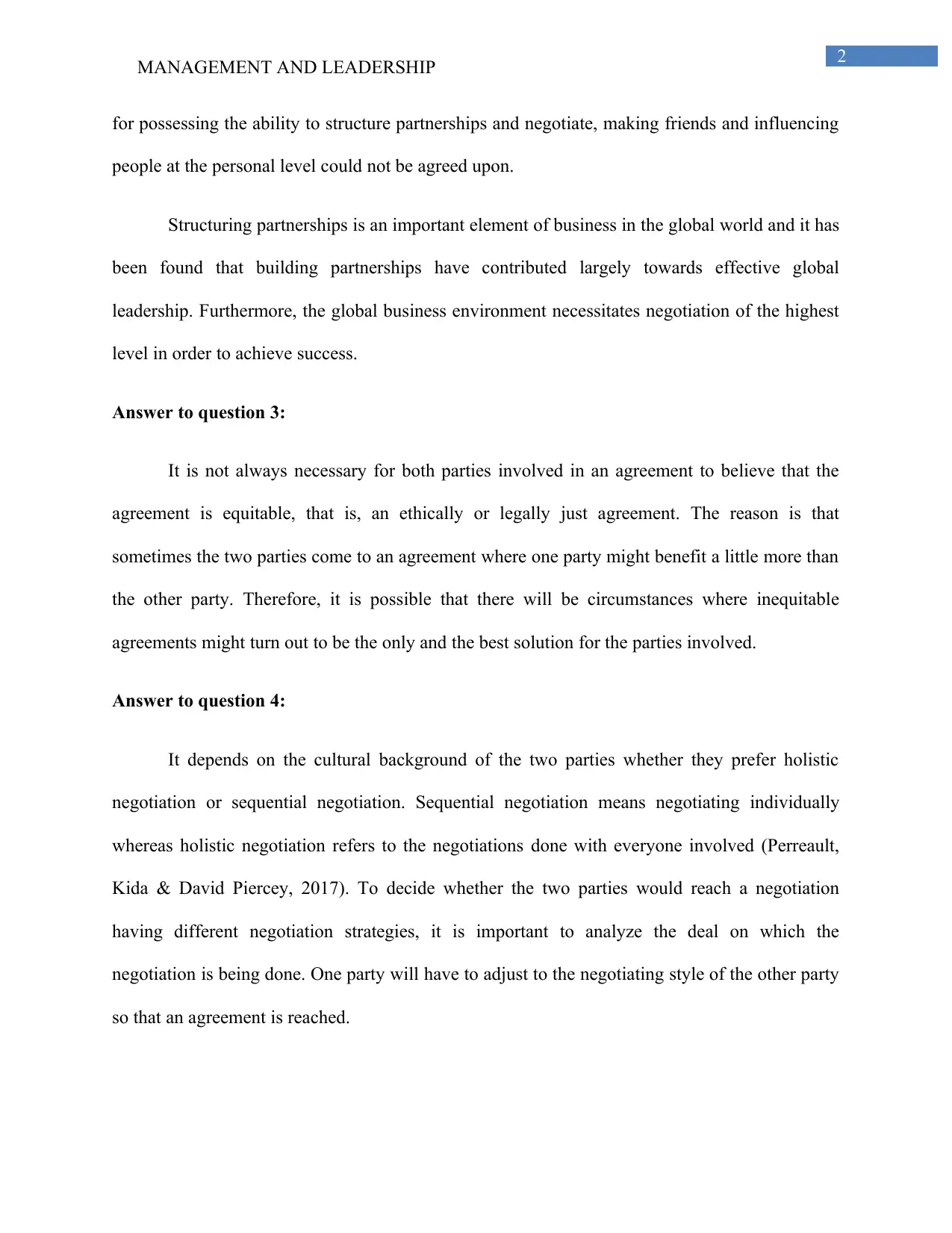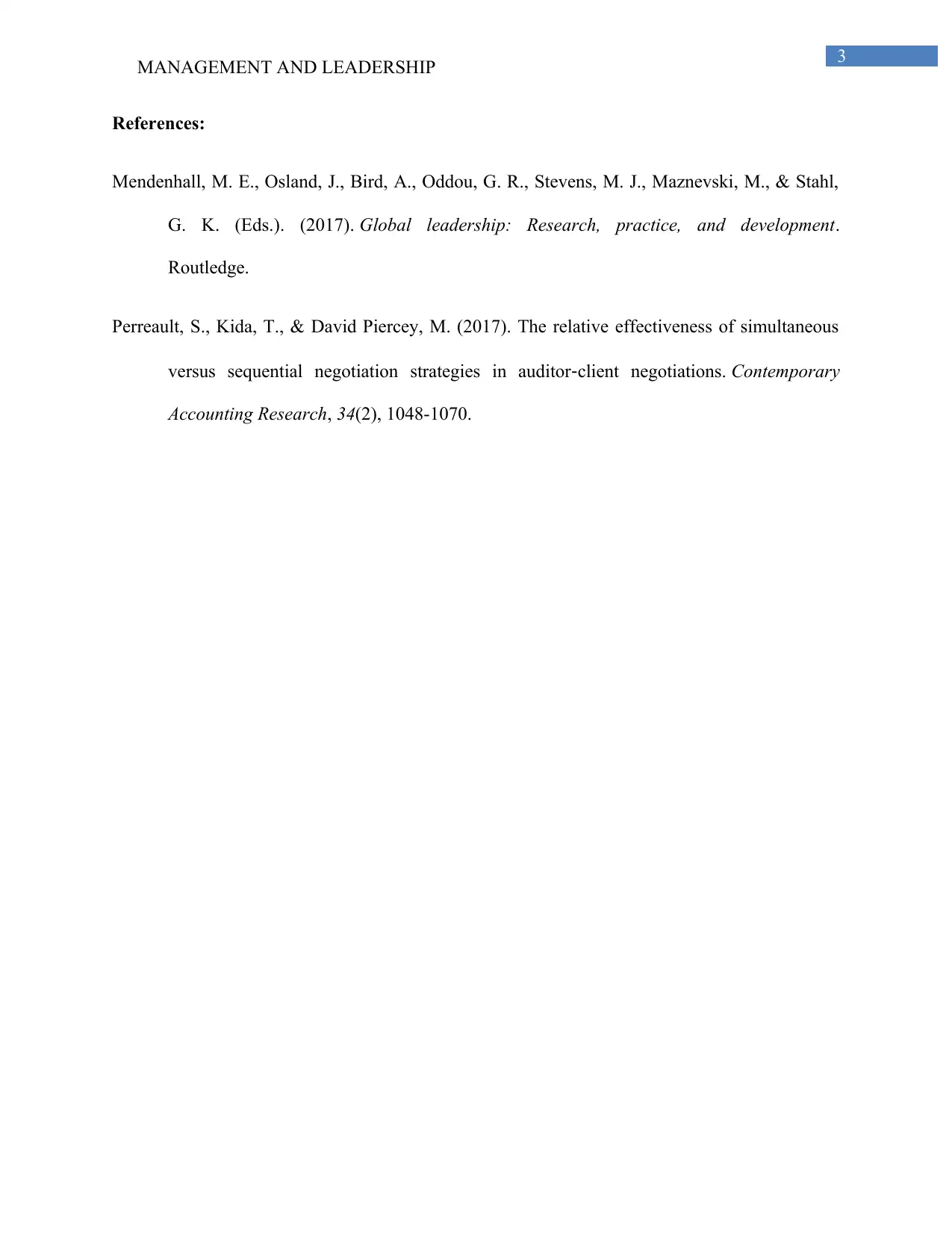Global Leadership: Analyzing Management and Leadership Strategies
VerifiedAdded on 2022/10/06
|4
|664
|31
Homework Assignment
AI Summary
This assignment explores key aspects of global leadership, addressing critical skills and strategies for effective management in a globalized world. It examines the importance of a global mindset, intercultural communication, and cultural sensitivity in navigating diverse business environments. The assignment analyzes Charles Handy's insights on essential leadership skills, contrasting them with the demands of the contemporary business landscape. It further delves into the nuances of equitable agreements, highlighting scenarios where perceived inequities might still be viable solutions. Finally, it considers the impact of cultural backgrounds on negotiation styles, differentiating between sequential and holistic approaches and emphasizing the need for adaptability in achieving successful outcomes. This assignment provides a comprehensive overview of the challenges and strategies involved in leading effectively across cultural and economic boundaries.
1 out of 4





![[object Object]](/_next/static/media/star-bottom.7253800d.svg)